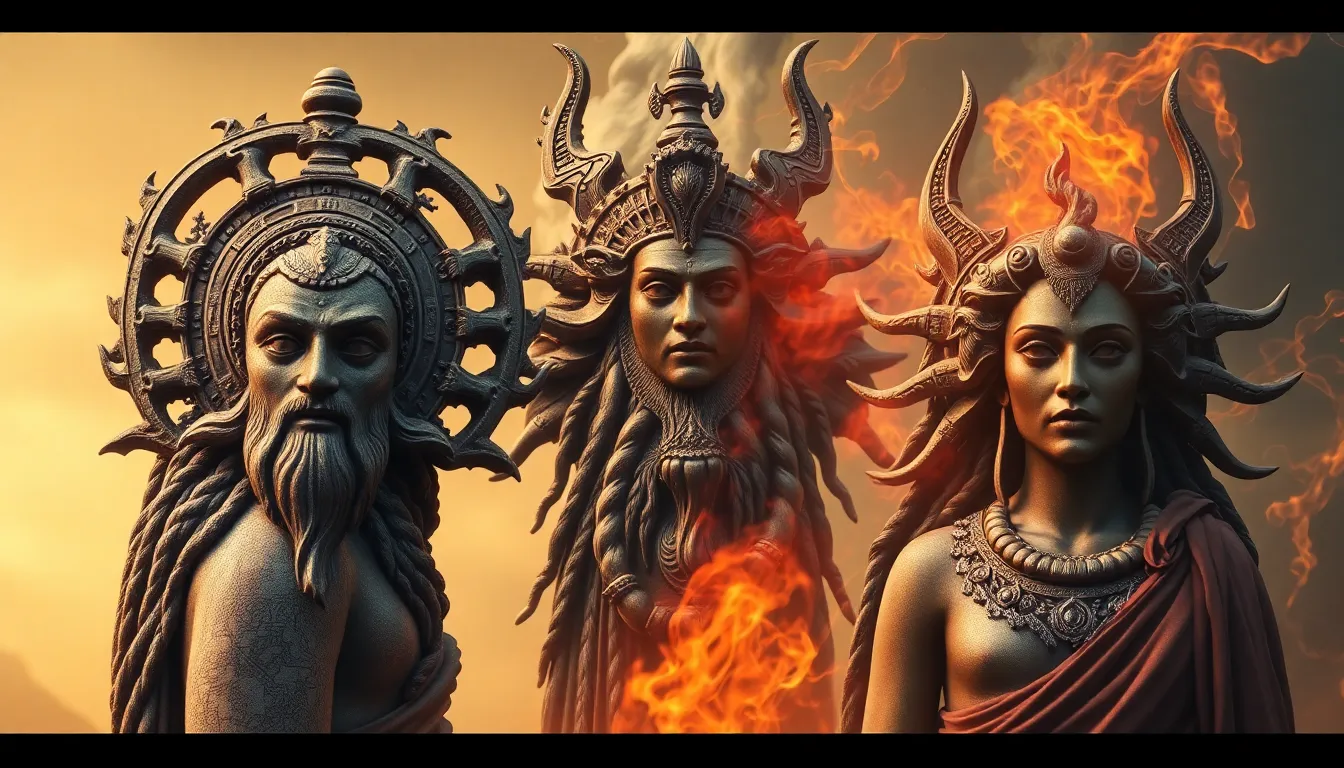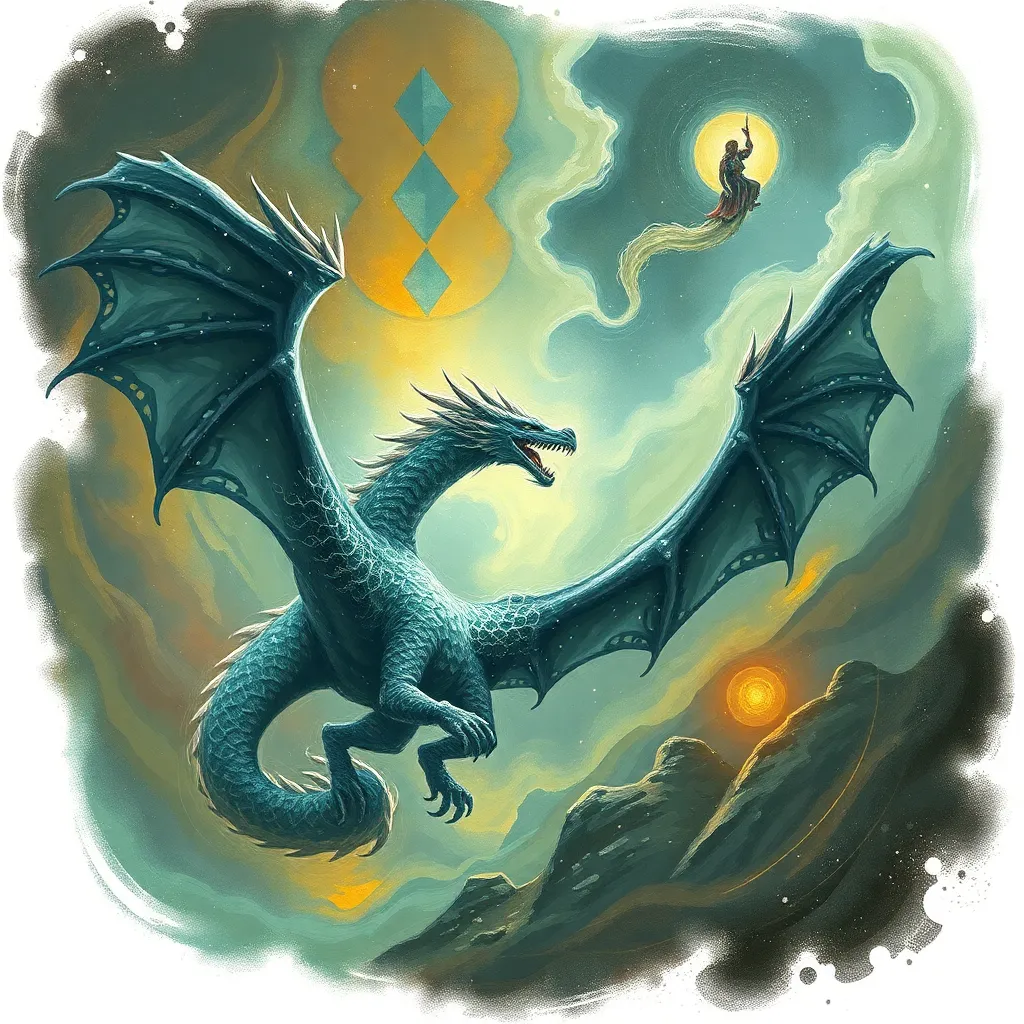Curses in Ancient Greece: The Fates of the Damned
I. Introduction
Curses in ancient Greek culture were powerful expressions of anger, vengeance, and moral outrage, often invoking divine retribution or misfortune upon individuals or families. These curses were not merely superstitions but integral elements of Greek mythology and religion, embodying the consequences of human actions and the will of the gods.
The importance of curses is vividly illustrated in both myth and literature, where they serve as catalysts for tragedy and moral lessons. This article will explore the historical context of curses, their relationship with fate, notable examples from mythology, and their enduring influence on modern culture.
II. Historical Context of Curses in Ancient Greece
Curses held a significant role in ancient Greek religion and society, often intertwined with their understanding of justice and morality. They were seen as a way to address wrongs and seek retribution, reflecting societal values and beliefs.
The evolution of curse practices can be traced from the Archaic period, where they were often part of personal vendettas, to the Hellenistic period, where they became more ritualized and formalized. In this context, oracles and divination played crucial roles in the formulation and interpretation of curses, with individuals seeking guidance from the gods on how to proceed with their grievances.
III. The Concept of Fate and Destiny
Central to the understanding of curses in ancient Greece is the concept of fate, or Moira. This idea suggests that each individual has a predetermined fate that is out of their control, yet their actions can still have profound implications on their destinies.
The interplay between personal choice and predestined curses is a recurring theme in Greek mythology, where characters often face the consequences of their actions despite their attempts to change their fates. Key figures associated with fate include the Fates themselves—Clotho, Lachesis, and Atropos—who spun, measured, and cut the thread of life.
IV. Types of Curses in Greek Mythology
Several types of curses can be identified in Greek mythology, each serving different purposes and reflecting various themes:
- Family curses: These curses often stemmed from ancestral sins and had devastating effects on entire bloodlines, such as the curse of the House of Atreus.
- Individual curses: Personal vendettas were common, where individuals sought retribution against those who wronged them, leading to divine intervention and punishment.
- Environmental curses: Cities and lands could be cursed due to the actions of their inhabitants, leading to plagues, famine, and ruin.
V. Notable Curses and Their Stories
Several notable curses from Greek mythology illustrate the themes of fate and retribution:
- The curse of the House of Atreus: This infamous family curse involved murder, betrayal, and cannibalism, leading to a cycle of vengeance that plagued generations.
- Oedipus: The tragic story of Oedipus exemplifies the devastating repercussions of fate, as he unknowingly fulfills a prophecy that leads to his downfall.
- The punishment of Cassandra: Cursed by Apollo to utter prophecies that would never be believed, Cassandra’s fate serves as a poignant reminder of the tragic consequences of divine retribution.
VI. The Role of Gods and Goddesses in Curses
The pantheon of Greek deities played a crucial role in the enactment of curses. Major deities, such as Hera and Athena, were often depicted as enforcers of divine justice, wielding curses to punish transgressions against the gods or moral order.
The balance of power between divine justice and human folly is a recurring theme, where mortals often overstep their bounds, invoking the ire of the gods. Curses, therefore, became a means of enforcing moral order, reminding humanity of their place within the cosmic hierarchy.
VII. Curses in Ancient Greek Literature and Drama
Ancient Greek literature and drama are rich with examples of curses, with key works such as The Oresteia and Oedipus Rex exploring the devastating impact of these supernatural forces. In these tragedies, the chorus often plays a vital role in conveying the weight and consequences of curses, reflecting the moral dilemmas faced by the characters.
The audience’s perception of curses and fate is intricately woven into the narrative, prompting reflections on justice, retribution, and the human condition.
VIII. Rituals and Practices Associated with Curses
Invoking curses often involved a variety of methods, including inscriptions on clay tablets, rituals performed at altars, or the use of figurines as symbolic representations of the intended target. These practices were believed to channel the power of the gods and ensure the curse took effect.
Conversely, protective measures against curses included the use of amulets, prayers, and offerings to appease the gods. Additionally, curses played a role in funerary practices, where individuals might curse their enemies in hopes of achieving justice in the afterlife.
IX. Modern Interpretations and Relevance
The legacy of Greek curses continues to resonate in contemporary literature and media, influencing narratives that explore themes of fate, destiny, and moral consequences. From novels to films, the archetype of the cursed individual remains a compelling element of storytelling.
Psychologically, curses can symbolize the fears and anxieties surrounding loss of control and the consequences of one’s actions. The fascination with curses also reflects a cultural intrigue with the unknown, the supernatural, and the moral complexities of human behavior.
X. Conclusion
In summary, curses in ancient Greece represent a complex interplay between divine will, human action, and the inexorable force of fate. Through their historical context, notable examples, and their depiction in literature and drama, curses serve as a powerful reminder of the moral order that governed ancient Greek society. Their modern interpretations continue to captivate audiences, ensuring that the themes of fate, retribution, and tragedy remain relevant today.



